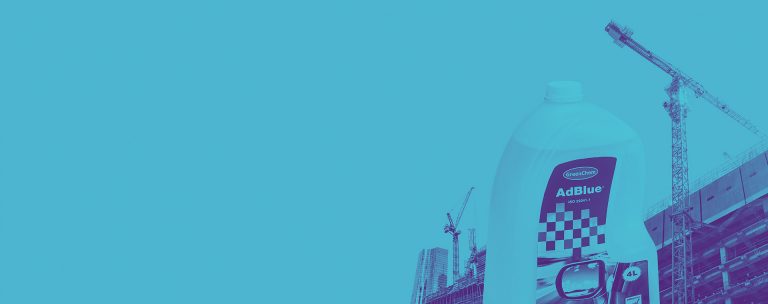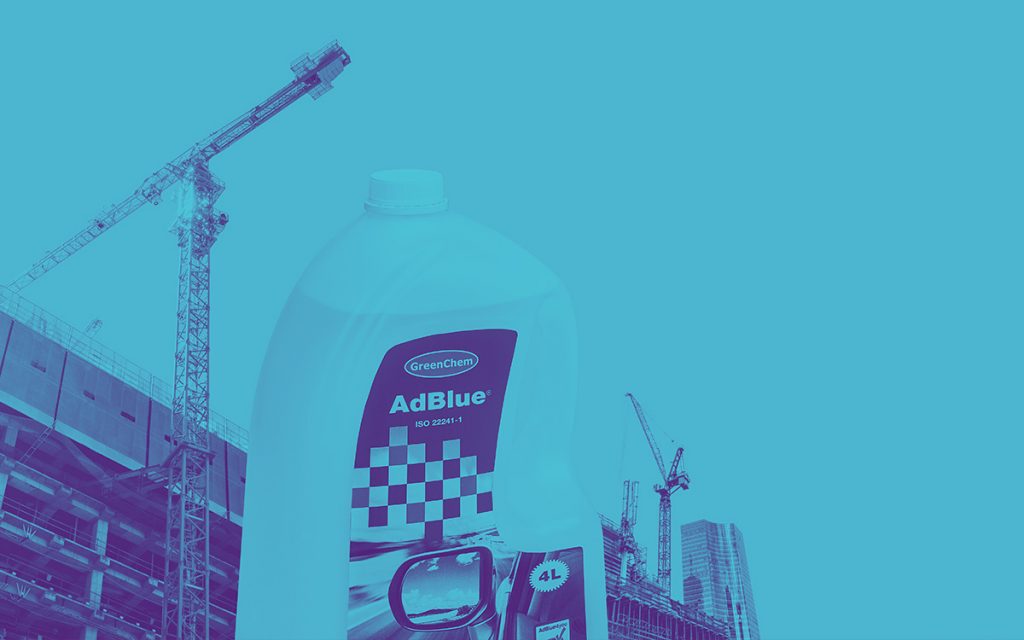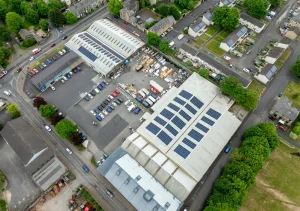
When looking to make savings on a construction site; gas oil, lubricants and AdBlue are some of the first places site managers look to cut costs. But not all products are created equal. While opting for cheaper products can help to save money in the short term, the price of poor quality over time can far outweigh any initial savings.
Here we explore how lower grade products can impact plant productivity, and what construction businesses can do to ensure they’re not being short-changed.
Contaminated Fuel
The primary contributor to poor diesel quality is water contamination. If gas oil holds greater water content than specified in British Standards, it can damage plant equipment in any one of three ways.
Firstly, higher water content attracts microbial contamination that can lead to an infestation of ‘diesel bug’. Diesel bug can lead to clogged filters caused by a build-up of larger particles in the contaminated fuel. Greater water content can also corrode components and reduce the effectiveness of engine oil – leading to damaged injectors. Last but not least, water contamination can lower the cetane number of diesel. As cetane number indicates the ignition quality of a fuel, a lower cetane number can affect engine and starting performance in plant machinery.
Remediation and demolition experts, Rye Demolition experienced these issues first-hand. Numerous deliveries of gas oil with high water content led to a build-up of deposits on filters, requiring costly and frequent replacements. As well as facing high maintenance bills, the frequency of changes required also had an impact on NRMM availability for their plant hire business, and required the company to send maintenance staff to service affected customers.
After changing supplier and taking reliable deliveries of high quality gas oil from Certas Energy, the requirement for filter replacements drastically decreased. The result? Increased machinery uptime, greater productivity and higher profits.
Nothin’ But The (Ad)Blues
Used in the selective catalytic reduction (SCR) systems of excavators, cranes and plant engines to reduce emissions of nitrogen oxides, AdBlue plays an important role in minimising pollutants from plant equipment. AdBlue is a high-purity, synthetic solution that contains extremely precise ratios of urea and deionised water.
SCR catalysts in off-road machinery are very sensitive to impurities, so it’s little wonder that any compromise in AdBlue composition can cause issues. Poor quality AdBlue can lead to deposits and blockages on the catalyst, increasing pollution levels as well as fuel consumption. So not only could your site fall foul of emissions regulations, you might be facing higher fuel and maintenance bills.
Smooth Out Inefficiencies
Oils, greases and hydraulic fluids are essential in protecting plant machinery components from wear and tear. They must consistently deliver high shear stability while withstanding the harsh conditions of a construction site – dust, dirt, high temperatures and humidity.
It’s true that buying cheaper oils and greases may cut costs in the short term. But the decreased wear protection provided by inferior products can lead to more rapid degradation of components. Considered alongside the associated impact on machinery availability, breakdown frequency and site productivity, it’s clear that lower quality lubricants can have a much greater effect on a construction business’ bottom line.
Choosing a high-performance lubricant that effectively keeps components clean of deposits and protects against wear can increase the availability of machinery, extend equipment life and cut periods of unplanned downtime. By decreasing spend on spare parts and maintenance, high quality lubricants create savings that far exceed what can be achieved by selecting products based on the lowest cost.
Putting Quality First
The EN590 standard signifies that the fuel contains no more than 200mg of water per kilogram, meaning it is less likely to attract the microbial growth that can lead to filter blockages and injector problems. EN590 standards also specify a minimum cetane number, which ensures optimum fuel ignition properties and therefore engine power.
For peace of mind that your AdBlue is high grade, make sure that you are ordering from a VDA licensed partner and check that the label on your AdBlue stats ISO 22241 compliance.
As for lubricants, checking the ISO viscosity grade – which measures an oil’s resistance to shear stress – is a good starting point for quality. The optimum viscosity grade will be set by your equipment’s manufacturer, but going beyond this can deliver greater protection in the long run. One size does not always fit all for lubricants, so the best policy is to get in touch with your supplier to discuss the best value product for your needs.
At Certas Energy, we believe that long-term value should always take precedence over short-term cuts. All products in our range – whether gas oil, AdBlue or storage tanks – comply with government and ISO standards, and are selected to add value to your construction site.
Think Bigger – partner with a fuel supplier you can trust. Get in touch via our contact form to find out more about how we can keep your construction site moving.







